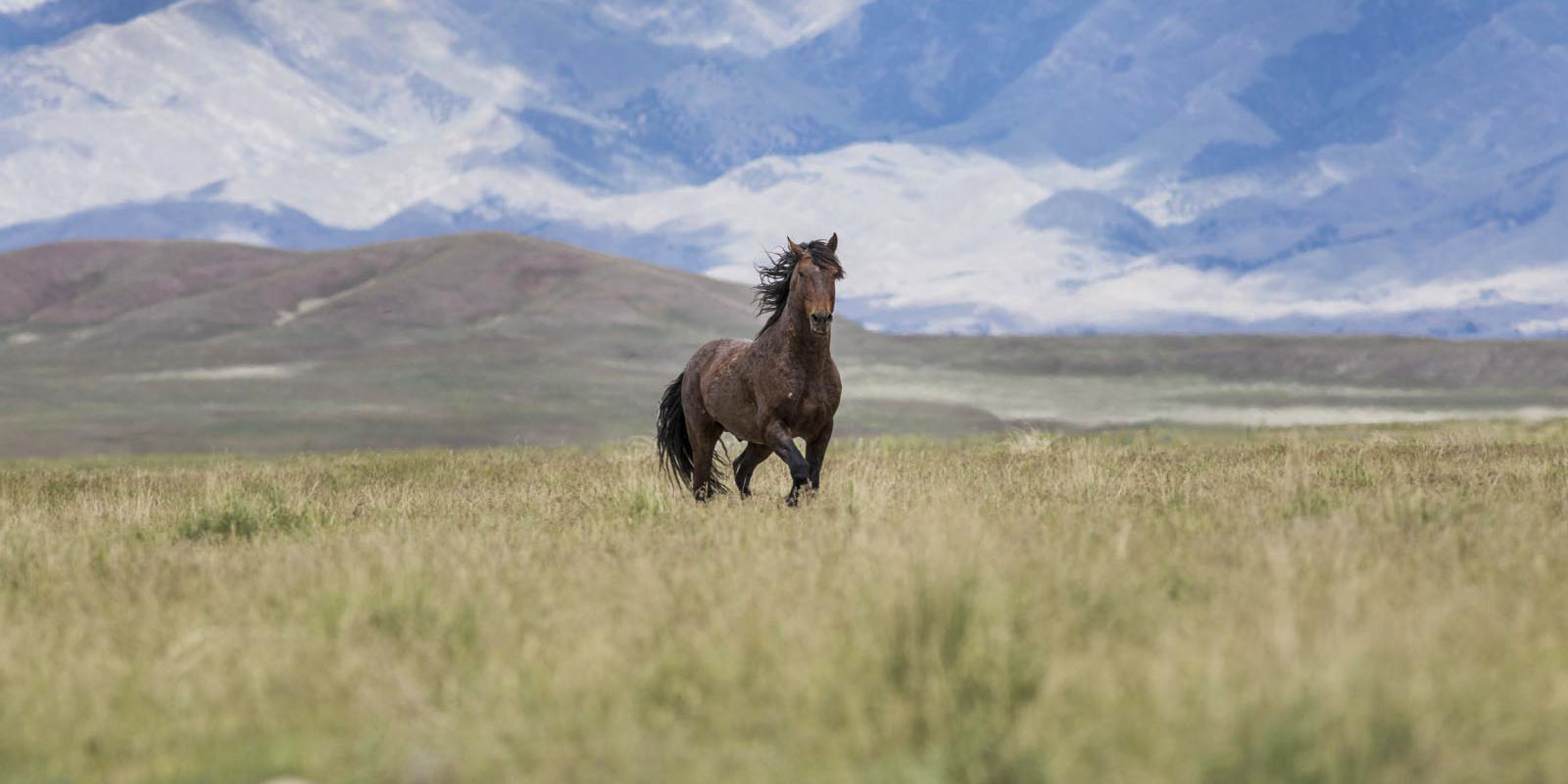Advocates for wild horses and burros reacted angrily Tuesday night, July 18 to an amendment to a House spending bill they said would pave the way for the mass killing of wild horses and burros on public lands.
Details of the amendment, which came up in the House Appropriations Committee, were not immediately available. But the amendment offered by Rep. Chris Stewart, R-Utah, passed by voice vote, according to two advocacy groups that were monitoring a series of changes to the House’s fiscal 2018 spending bill for the Department of the Interior and other agencies.
“Let’s be clear: House Appropriations Committee members just signed a death warrant for America’s mustangs and it will lead to the wholesale destruction of these irreplaceable national treasures,” said Suzanne Roy of the American Wild Horse Campaign in a news release. “The Stewart amendment is a mass slaughter amendment, and its proponents are trying to hide that fact from the American public.”
“We will hold these members of Congress to account for this public deception and unacceptable assault on our wild mustangs,” Roy added.
Return to Freedom Wild Horse Conservation also condemned the vote.
“This shortsighted amendment would throw open the door to large-scale killing of wild horses. It would excuse the Bureau of Land Management for creating a crisis by perpetuating a broken system of capturing and removing horses from the range while all but ignoring proven, humane management alternatives,” the group said in an emailed statement.
Rep. Ken Calvert, R-Corona, who serves on appropriations, defended the amendment and encouraged the public to adopt wild horses and burros.
“The reality on our federal lands is that the status quo is not working for our wild horses and it’s not working for taxpayers. According to the BLM, wild horse and burro herds can double in size about every four years and, as a result, it estimates it will cost taxpayers roughly $1 billion to feed and care for the animals currently in federal holding facilities throughout their lifetime,” he said in an emailed statement.
“Today’s vote was a difficult one, but we simply cannot continue (to) shove more and more wild horses and burros into holding facilities and act as if that’s somehow a good outcome for these animals or taxpayers,” Calvert added.
“I stand ready to work with animal welfare organizations, the BLM, and all stakeholders to find new and innovative ways to remove excess wild horses and burros from our public lands and place them in better, sustainable environments.”
The amendment came about during a daylong appropriations committee hearing to hammer out amendments to spending bills for the interior department, Environmental Protection Agency and homeland security, among other agencies.
A draft of the $31.4 billion spending bill that went to the committee Tuesday contained language that forbade the killing or sale for slaughter of wild horses and burros roaming millions of acres in the West.
That language has been a part of prior House spending bills. But the Trump administration wanted to take out the language to deal with what officials say is a horse overpopulation problem that threatens to damage public lands and overwhelm the budget for the Bureau of Land Management’s Wild Horse and Burro Program.
Cattle ranchers, concerned the horses would compete with their livestock for grazing, also supporting lifting the restrictions.
Wild horse advocacy groups mobilized to keep the language, saying wild horses are an enduring symbol of the West. Advocates question the BLM’s horse population estimates and fault the bureau for not aggressively pursuing birth control vaccines to curb the herd’s numbers.
They also pressured Calvert, who chairs the appropriations subcommittee that deals with BLM spending, to save the horses.
Calvert, who has won awards for his work on animals’ behalf, said that while he didn’t want to see horses or burros killed, something had to be done to deal with overpopulation.
“There’s only so many dollars, and so we’ve got to get control of this horse issue because this number is only going to increase,” Calvert said last week.
“I want a humane and practical solution. Some of these horses are in bad shape and that’s not right either.”
Also last week, Calvert voted against an amendment that would have barred federal funds from being used to inspect horses that were ticketed for slaughter. That amendment failed on a 27-25 vote.


